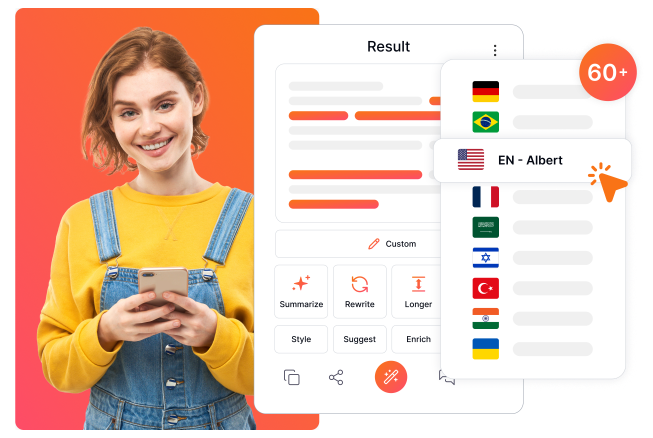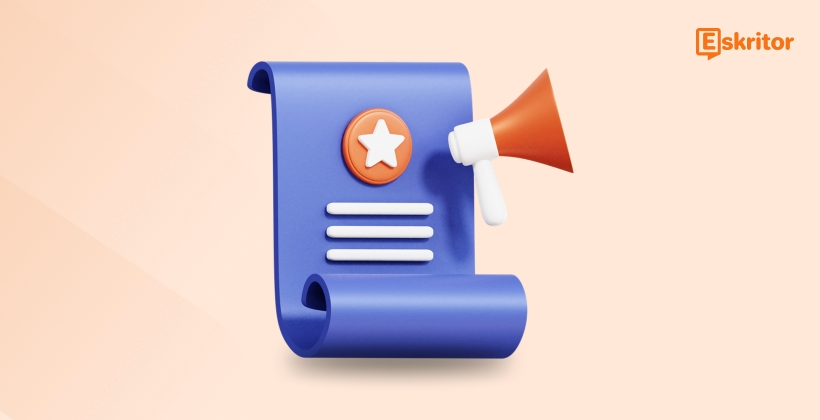The Future of AI Writing Technology Explained
The Future of AI Writing Technology Explained
Blog Article
How AI Writers Are Transforming Content Creation
Artificial intelligence (AI) publishing engineering has developed rapidly in the last decade, reshaping the way in which we develop and communicate with written content. From grammar modification resources to AI-generated novels, the options appear limitless. But where just is this engineering heading? Let's discover the innovations, challenges, and possible future of AI Editing.

How AI Writing Technology Works Today
At their primary, AI writing engineering utilizes Organic Language Handling (NLP) and device learning. These technologies help versions to understand, produce, and improve human language. Instruments available nowadays do well at jobs like:
1. Material Generation
AI has reached a place wherever it can produce complete blog posts, social media captions, and actually news articles. Some versions are designed for mimicking human publishing variations therefore efficiently that distinguishing between AI- and human-written content is now significantly difficult.
2. Syntax and Design Recommendation
AI-powered publishing personnel don't just check for syntax and spelling errors; additionally they offer suggestions to boost tone, understanding, and sentence structure, creating complex publishing available to an extensive audience.
3. Emotion Examination
AI may consider the psychological tone of a piece, enabling corporations to assess how their communications can resonate with readers. That is particularly useful in marketing and customer interaction.
The Current Trends in AI Publishing Technology
Several traits are surrounding the next stage of AI-powered publishing instruments:
• Personalization
AI publishing technology is significantly capable of tailoring content to personal preferences. Types can conform to a user's publishing style, ensuring the productivity thinks authentic.
• Multilingual Functions
Several AI tools are increasing their world wide achieve by giving enhanced translation features and help for multiple languages.
• Improved Research Functions
AI methods now possess the ability to analyze great levels of data and present fact-checked, well-researched publishing in seconds, simplifying the procedure for specialists in industries like legislation, fund, and journalism.
What the Potential Supports for AI Writing Technology
1. Improved Imagination
While current AI is adept at generating content, its creativity is still limited by designs within its teaching data. Future AI is not only expected to assist but to create original, informative operates that concern individual imagination.
2. Seamless Effort
Imagine an AI that operates alongside you in real-time, finishing your phrases, conducting live edits, and even brainstorming ideas. AI publishing tools may possibly soon become co-authors, permitting imagination to movement uninterrupted.
3. Ethical and Accessible Design
With rising problem about plagiarism, misinformation, and bias, developers will work toward more clear AI training processes and moral implementation. Potential resources will more than likely provide more detailed citations and steps to ensure accountability.
Issues and Factors
The evolution of AI publishing engineering isn't without hurdles, including:
• Ethical Issues

Who possesses content developed by AI? Just how can we guarantee AI-generated material is not scattering misinformation? These debates stay unresolved.
• Human-AI Balance
Will AI complement individual imagination or completely replace certain roles? Several writers and musicians concern yourself with their relevance within an AI-driven world.
• Accessibility Divide
Not all agencies or parts have equivalent use of cutting-edge AI methods, increasing issues about the affect of the engineering on international inequality.
Changing the Way We Create
AI writing technology is still in its infancy in comparison to its potential. Whether you're students making documents, a material marketer targeting specific readers, or even a novelist seeking enthusiasm, AI instruments may continue to revolutionize the writing process. Another decade claims breakthroughs that combination human ingenuity with machine intelligence, developing a potential wherever writing is better, available, and impactful than actually before.
Report this page